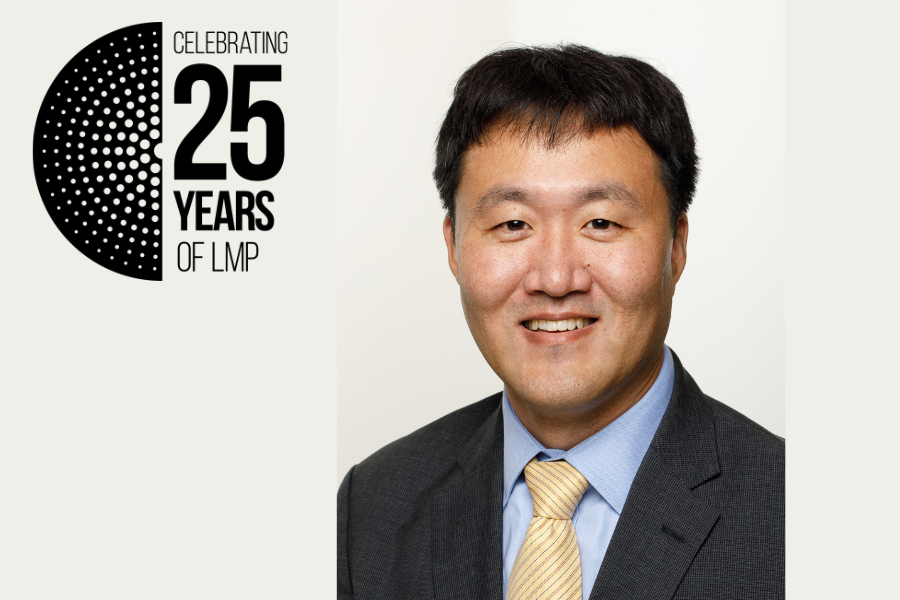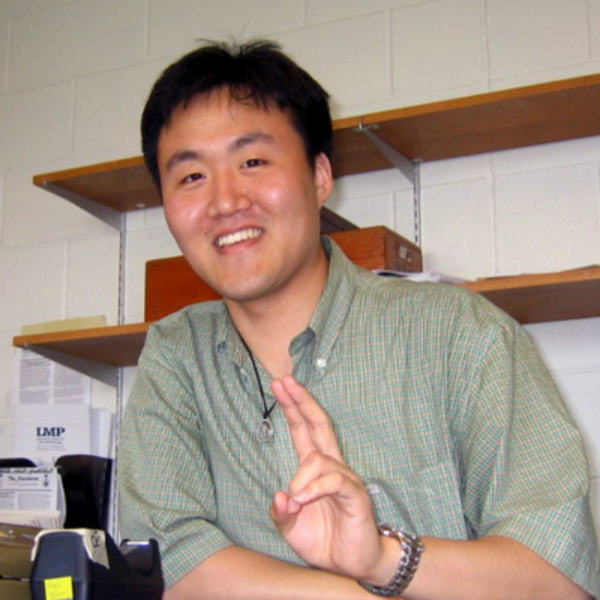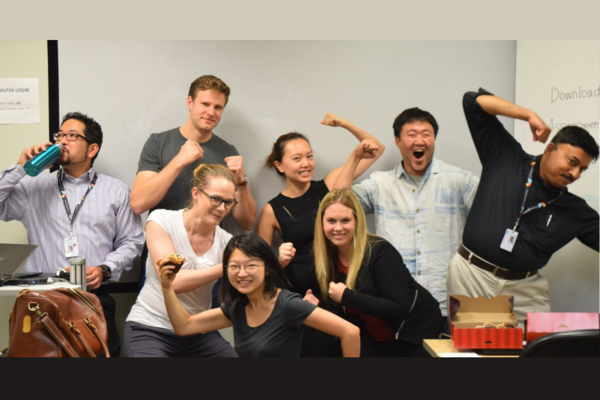LMP in the blood: a journey through basic, translational and clinical research and education

As part of our celebrations of 25 years of LMP, we speak to one of our leaners who has been in the department for more than 12 years. Visit the celebration web page to find out more about this anniversary.
“It’s amazing that I was an undergraduate coming from chemistry, tried molecular biology, and discovered a love for Forensic Pathology in the span of one summer to the next. I could take it further scientifically, and am now pursuing it clinically, all within the same department. I’ve experienced basic science, transitional research, and clinical medicine all in one program without having to think about going anywhere else”, says Dr. Patrick Kim.
Having started in the undergraduate Specialist Program in Pathobiology in 2003, Kim is now a Forensic Fellow in his final year of study in the Department of Laboratory Medicine in the Temerty Faculty of Medicine. With 12 years of LMP education under his belt so far, he has taken part in almost every program the department has to offer.
Joining the University of Toronto to study chemistry, he soon discovered that, despite his love for the subject in High School, further studies were quite different. “I loved it at school and was good at it, but after my first year I just couldn’t see me committing to it long term or having a career in the subject.”
A friend of Kim’s was a 2nd year in the LMP Specialist Program and enticed him to apply after telling him about the research faculty and summer research program available. Interested in research, he thought the program sounded perfect.

He took advantage of all the research opportunities available while he completed the program, particularly the Summer Undergraduate Research Experience (SURE) Program. There he got to try out different areas of life sciences research, but it was an opportunity to work with Dr. Michael Pollanen (Chief Forensic Pathologist for the Province of Ontario, and Professor in LMP) one summer that set him on his current course. Examining the presence of bone marrow fat in the lungs of trauma and non-trauma related death cases, he continued this work into his 4th year research project.
One of the highlights for him was how involved Pollanen got him in the autopsy suite. “I enjoyed the research but the most exciting part was getting to shadow Dr. Pollanen whenever he had cases in the autopsy room - that’s where I spent most of my time. I was fascinated by the demonstrations and the residents who were learning there. I wasn’t under any pressure to learn and remember like they were, so I could just take it all in.”

The Goudge Inquiry, started in 2007, was created to address serious concerns over the way criminally suspicious deaths involving children were handled by the Province of Ontario. Kim completed a thesis on paediatric head injuries in this highly charged atmosphere, giving him insight into some of the pressures of forensic science as crown attorneys showed up at his thesis defence. An experience he described as “a little bit stressful as they sat there taking notes throughout my examination”.
After completing his Masters, Kim still didn’t want to go to medical school, so left LMP when he was offered a job as a Forensic Services Technologist.
A new type of job created from outcomes of the Goudge Inquiry, his role was to catalogue and maintain all samples collected at autopsy, ensuring chain of custody and that the right samples got to the right laboratories in the right format for further testing. He thrived in the challenges of the job – working with multiple stakeholders and laboratories, being in a busy office and dealing with both the scientific and legal aspects of Forensics. “It was a really interesting time as the system was changing so much, as well as new types of testing like genetics being utilized.”
However, Kim missed the intellectual stimulation of being in LMP and doing research. He had kept in close touch with Pollanen and one of his other professors, Dr. Kristopher Cunningham, who advised him that the only way forward was “to go back to school for another 10 years,” laughs Kim.
He finally joined medical school at Queen’s University in Kingston. At age 30, he was one of the oldest students in the class. Rather than be put off, he saw this as a huge advantage in his studies. “It gave me a unique perspective. A lot of medical students in my class had only ever wanted to go to medical school and their entire undergraduate experience was geared towards making themselves a good candidate to be accepted. I was different and had work experience in a government structure which taught me how things work in labs, how to work with different stakeholders and how to communicate with a broad range of people. This was a huge advantage when transitioning into the hospitals in third year. I had a better perspective in how medicine worked and how to prioritize, but I just did not have energy like the younger ones so it was tiring. But I knew what I wanted to do, and it made medical school a little bit easier.”

Kim tried to keep an open mind about other specialities in medical school, but Pathology was always his first interest. His spent his electives as a Clerk in Pathology subjects in Vancouver, Calgary and Halifax. Despite being away from LMP, he always considered it home and would often “come over at the weekends and just say hello and get to see some autopsies along the way”.
His chance to return came in the form of an Anatomical Pathology residency, followed by his current PGY-6 Forensic Fellowship which he will complete in June 2023.
“The combination of scientific and clinical knowledge has really helped me grow into the role of a future Forensic Pathologist, and the time off in between school got me the proper perspective of what Forensic Pathologists do outside of autopsy room. LMP has taught me how to solve puzzles through science, logic, medicine and critical thinking. It’s become my home and I hope I’ll always be able to be part of it.”



